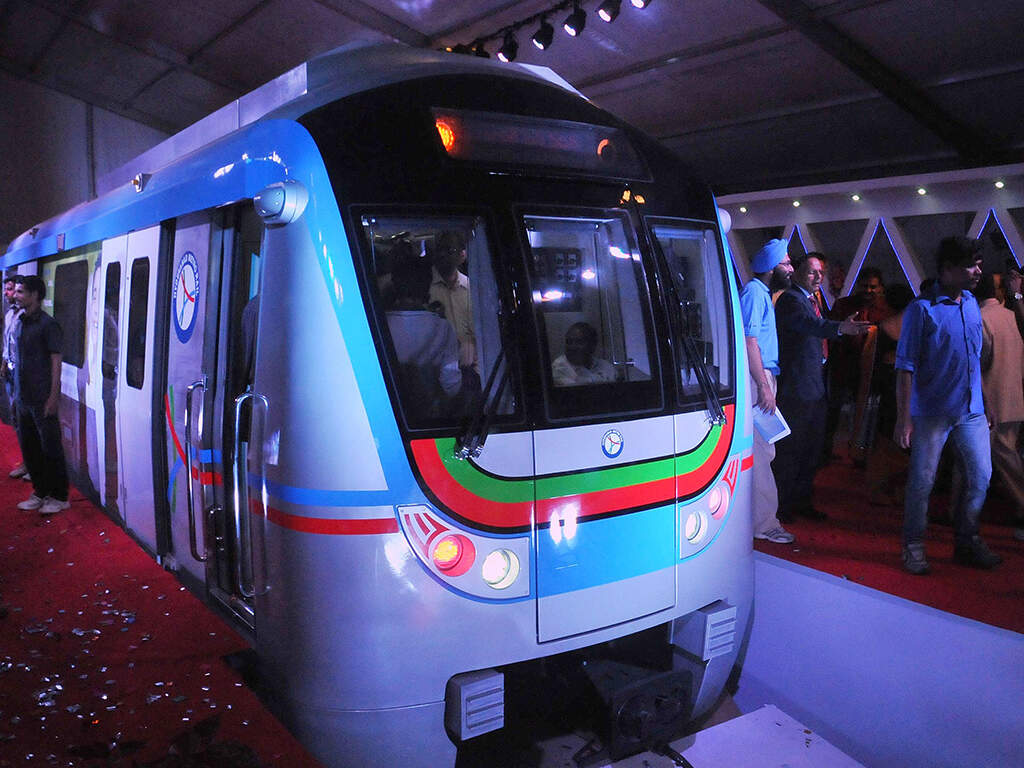
This is published unedited from the PTI feed.įor breaking news and live news updates, like us on Facebook or follow us on Twitter and Instagram. If things move as planned, the Visakhapatnam Metro could hopefully be chugging in four years. “We are approaching Korean and other foreign agencies for required funds (state share),” Ramakrishna Reddy added. He informed that of the total project cost, the private developer would have to spend Rs 4200 crore on non-civil works while the state government would invest the balance on civil works. After canceling the original tender in April, Noida Metro Rail Corporation (NMRC. Filing of bids will close on February 27 and then request for proposal will be invited from the companies, the AMRC MD said. Ltd are the only two bidders for providing Detailed Design Consultancy services for the 25 kV Overhead Equipment (OHE) system of Noida Metro Aqua Line’s 14.95 km extension (Sector 51 to Knowledge Park V). “This is at an advanced stage and we have invited bids for expression of interest and Korean, Malaysian and Indian companies have evinced interest in Visakhapatnam Metro. It was only late last year that the state government finally decided on the public-private partnership (PPP) route for the Rs 8,800 crore, 42-km project. The case of Visakhapatnam Metro is more or less similar with a lot of time lost on deciding the corridors on which it has to be built and how the project should be taken up. Once the DPR is ready, we will submit it to the Centre for approval,” AMRC Managing Director N P Ramakrishna Reddy told PTI. A consortium led by French firm Systra has been engaged for this while KfW of Germany is funding it. “We are now getting a DPR prepared for the LRT. The LRT system is one of the most avant-garde technologies operating in Germany and France while the metro train system is more rigid,” noted a senior official of the Amaravati Metro Rail Corporation, a special purpose vehicle floated by the state government.

“The light rail technology (LRT) is more flexible and profitable than the metro system. In the meantime, the state government toyed with the idea of taking up a light rail system or an elevated bus rapid transit system for Vijayawada before finally settling for a light rail system. ‘Metro Man E Sreedharan also quit as principal advisor to AP government in July 2017, compounding the chaos. The Centre eventually “rejected” the Vijayawada Metro proposal in March 2017 saying it was “not financially viable”. 47 per cent against the stipulated 8 per cent and above.īut the Chandrababu government got it “sanctioned” citing a “political commitment” (made during the state’s bifurcation)from the Urban Development ministry which was at the time led by M Venkaiah Naidu.

In July 2015, after scrutinizing the DPR, the Union Ministry of Urban Development found Vijayawada “ineligible” for a metro for a variety of reasons, including a meagre financial Internal Rate of Return of just 3.


 0 kommentar(er)
0 kommentar(er)
